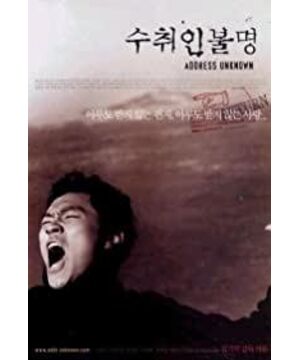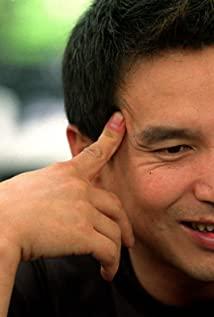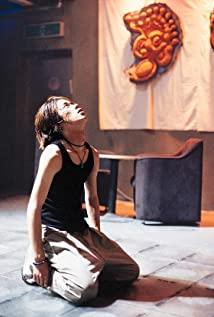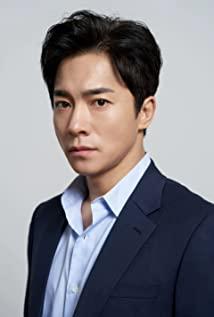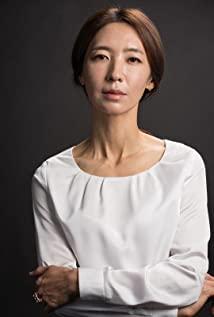The roaring U.S. fighter jets seemed to be crushing the village and passed by in a low voice. The dogs that keep appearing in the film seem to have some sort of reference. In Enluo's house, the black and white dog represents lust. The arrival of the soldier took the place of the dog. The butcher "Dog Eye" was hanged by the mixed-race Zhang Cheng to vent his anger by butchering dogs, so the "Dog Eye" who killed the dog became a dog. Zhang Cheng, who killed the butcher, was sitting in the dog cage behind the motorcycle at the beginning of the chapter, curled up, dodging his eyes like a dog waiting to be slaughtered. The barking, whimpering or ferocity, all had the dryness and chill of the cold season. A barbed wire separates two incompatible worlds: a superior American occupier and a weakened South Korea. Many opposing characters are enclosed in this crowded village and collide: the dog-killer and the dog to be slaughtered; the American Korean woman and the half-breed they gave birth to; Although there are many characters, none of them is a thin piece of paper, they are all a collection of contradictions. In order to survive in this wasteland, they worked hard to live until they lost their minds.
The American soldier, who was on the verge of collapse, was essentially just a helpless young man. Having been away from home all year round, he was attached to his mother, and his loneliness overwhelmed him. Like an older baby, he is constantly provoking military regulations, but he doesn't dare to blatantly cross the line. The soldier in need of a woman traded medical treatment for the commitment of the one-eyed woman Enlo. He professed his love for the woman with all his mouth, but waved his palm away slightly. His hypocritical face was revealed from the very beginning, with a clear purpose to approach, use, and possess Enluo, who is blind in the right eye. He said that he loved her and prayed to be loved, but he objectified his woman. A woman is to him what a toy is to a child. The perverted bear child put into the strong body of the adult can only create evil. "Will you still remember me after I leave?" The American soldier grabbed the knife and attempted to carve his name on Enluo's chest, just like a primary school student wrote his name on his book, indicating that the thing belonged to.
Changhua's father, who regarded himself as a war hero for killing three North Korean communists, dismissed him as a "communist bandit" in the face of the bones dug up in front of his house, and was quite contemptuous of the butcher. The butcher asserts that he will one day sell his dog. When the money was too small, Changhua's father, who was pretentious, could only sell his dog to the butcher.
Changhua is cowardly by nature, and is blindly forbearing in the face of the village gangsters. In the end, however, the killing intent was born. He shot two arrows at the Americans who possessed Enluo: the first time Enluo had a close relationship with the soldiers, Changhua hid behind the window with the mentality of revenge for his rival and shot one arrow. The second time was when the relationship between Enluo and Da Bing broke down, and even at the expense of self-harm, even the villagers pointed bows and arrows at Da Bing, and Changhua shot an arrow decisively. With the motivation of protecting his lover, he is no longer simply shooting an arrow for self-interest, but with moral support, he is full of confidence. This time, he shot the soldier in the crotch, so ironic.
Enlo is like Zhang Wu's mother decades ago, pinning her hopes on the US military. Looking forward to the GIs who can bring them a promising future. However, the soldiers only used them as tools to vent their desires. Give small favors, get unlimited contributions from the women in the occupied area, engrave the names of the women who are materialized, and leave the women in a desperate village like discarding objects. We only see the end of Zhang Wu's mother's tragedy. The film reproduces the tragedy of that year for us in Enluo's body. However, the two generations of women are different. Enluo finally chose to resist. At the end of the film, the American soldier lost his mind and went to Enluo's house. He took off the mask of hypocrisy and showed a violent side to Enluo. After all, Enlo chose to self-destruct to cut off the reason for the endless demands of the American soldiers. Zhang Wu's mother spent her whole life hoping to get in touch with the black "husband" who had lost contact with him, and kept trying to get in touch with him, so that Zhang Wu's biological father could give her and her son a chance to go to the United States. For Zhang Wu's family, the village has a strong sense of rejection. She also never tried to fit in. Refused to speak her native language, she spoke English arrogantly, believing that she would eventually be taken to America to enjoy a happy future. His mouth is full of arrogance, but he is often rude with the villagers, and he is not ashamed to steal vegetables from the greenhouse. She has lived without dignity, but she is still hypnotizing herself, with unrealistic fantasies. Perhaps it was this kind of self-respect without self-respect, or the long-term isolation and exclusion, her son Zhang Wu has a violent temper in the nest.
Zhang Wu beat his mother and cut off the physical imprint left by his biological father on his mother's chest, full of hatred. He also felt remorse, hugged his mother, and confided his apologies. Weeping silently in the face of the family photo. Zhang Wu longed for love and couldn't bear the scene of killing a dog. But the different skin tones and the absolute exclusion in the closed village made him crumble little by little. In fact, from the first time he picked up the bat to hit the dog, he began to go to ruin. Because he was ostracized, and because of the bullying of the "dog eyes", he was so angry that he had nowhere to vent. Even the butcher thought he beat him too hard. Maybe Zhang Wu didn't fight the dog, maybe from then on he was envisioning hanging up the mother's lover like a dog - "Dog Eye". Zhang Wu is the only person in the film who tries to escape, and the other characters choose to accept reality or have illusions about America. Only Zhang Wu, after cutting off the materialized marks on his mother and executing the butcher who had insulted him and hoped to possess his mother, rode the motorcycle with the dog cage and galloped away from the village. However, there is no escape from this bounded world. The wheels are stuck, and the warmed fields are muddy. Zhang Wu dies in the mud with his head down and freezes in the soil. (However, what is unreasonable is that there is a scene where the motorcycle is parked beside the dead Zhang Wu, and it doesn't even fall down.) Finally, he was chewed in the bus where he was brought back to the dwelling by his biological mother and returned to his mother's body. Zhang Wu's mother, who merged the bodies of two people, lit a fire, and everything went to zero. The letters that have been unable to be sent have finally heard back, and the reply has been blown away by the wind. In the black hole where hope can never reach, why send such a reply.
The misfortune of the individual finally evolves into the misfortune of the collective.
Helpless and violent, weak and criminals are all mixed up in a small village. All lost their minds before hope came. The film does not have any climax or surprising reversal, but rather a taciturn everyday life. However, this winter without big ups and downs has derailed the trajectory of every character.
No respite from beginning to end. Looking so desperate.
View more about Suchwiin bulmyeong reviews


